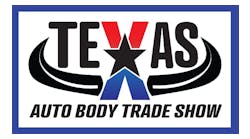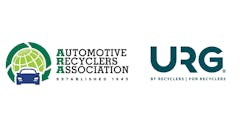July 9, 2018—Auto Care Association (ACA) president and CEO Bill Hanvey penned an op-ed opposing two Rhode Island bills (S-2679 and H8013) that could expand the time frame and extend restriction on the use of non-OEM parts to any part damaged in a collision, not just body parts, to 48 months.
Rhode Island Senate Bill 2679 (SB 2679), introduced March 20 by State Senators Maryellen Goodwin, Dominick Ruggerio and Michael McCaffrey, seeks to expand restriction currently in place on non-OEM collision repair body parts in first-party claims to any collision damaged parts.
In May, the Rhode Island Senate Judiciary Committee, voted for an amended OEM parts bill, extending the customer-consent requirement from 30 months to the first 48 months of vehicle life.
The Rhode Island House Bill 8013 was introduced March 29. House Bill 8013 amends that when an insurance company intends to specify the use of aftermarket parts, it will notify the vehicle owner in writing and body shops shall not use aftermarket parts in repairs without the owner’s written consent. For vehicles less than 48 months beyond the date of manufacture, no insurance company may require the use of aftermarket parts when negotiating repairs with the repairer.
The bill has sparked a lot of debate, with Aaron Schulenburg of the Society of Collision Repair Specialists advocating for OEM parts and Edward Salamy of the Automotive Body Parts Association advocating for aftermarket parts.
Read Hanvey's op-ed on the Providence Journal website, or see it below:
Two matching bills that passed during the 2018 legislative session (S-2679 and H8013) will do an extreme disservice to consumers and do nothing more than give the automobile manufacturers a monopoly on parts used in insurance repairs, padding the pockets of a select group of body shops. Now that this legislation has become law, Rhode Island will have far and away the most restrictive aftermarket-parts law for insurer repairs in the nation.
In short, the new law unfairly requires consumers to go to a dealership to get a low-cost part at an inflated price when they could instead get it from a local parts store. This includes windshield wipers, oil filters and spark plugs if they were damaged in a collision.
The law also requires that all repairs be done using the procedures and recommendations of the original equipment manufacturer. The original manufacturer is always going to recommend the use of its own higher-priced parts and try to eliminate the use of affordably priced, quality recycled and aftermarket parts, thus taking hard-earned money from consumers’ pockets.
While consumers can choose to use aftermarket parts for auto repairs, they are required to sign a waiver for their use, giving them the false impression that these parts are inferior. In fact, many of the original parts are produced by the same company that manufactures the aftermarket parts; only the package is different.
Some of the claims by supporters of the legislation were not accurate. One claim — that the use of parts other than those approved by the car companies will void a motor vehicle’s warranty — is actually prohibited by The Federal Magnusson Moss Warranty Act of 1975, which says that a manufacturer cannot deny warranty coverage based on the use of a non-manufacturer part or service.
The proponents also claim that aftermarket parts are unsafe and may put the occupants’ safety at risk. But where are the studies that can prove this? In fact, several studies, conducted by the Insurance Institute for Highway Safety, came to the conclusion that vehicle safety was not impacted by the use of aftermarket parts.
The citizens of Rhode Island highly value the principles of a free market. In practice, allowing the car companies to dictate which parts are used in repairs without any rational basis creates a monopolistic environment and an uneven playing field in the repair industry.
The alternative-parts industry contributes significantly to Rhode Island’s jobs market, as well as business and commerce. Nearly 9,000 jobs in the state, representing $1.6 billion in economic activity and $554 million in wages from more than 1,500 business outlets such as manufacturers, wholesale, retail and service, will be affected.
More important to consumers is the fact that the independent auto-care industry provides Rhode Island residents with affordable options for maintaining and repairing their vehicles, helping to maintain their second-biggest investment and ensuring that they can continue to get to their jobs and pick up their children at school.
By passing bills that will surely increase auto repair costs and cause insurance premiums to rise, the legislature has done a disservice to Rhode Islanders.


